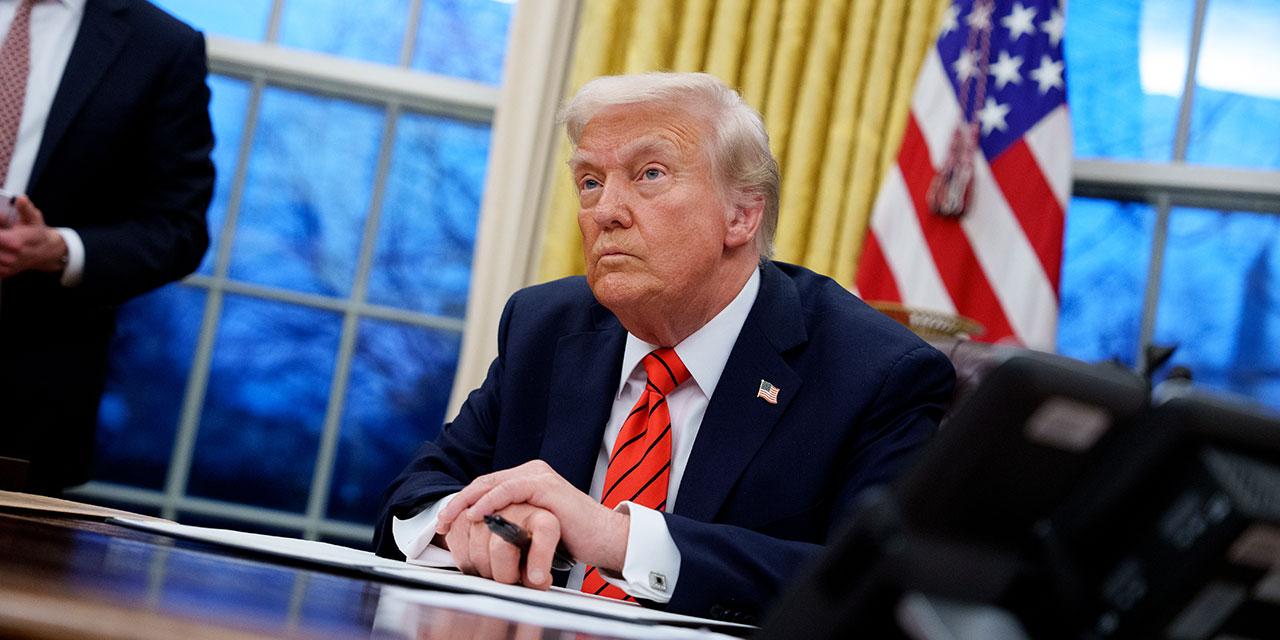
President Donald Trump’s executive order to pause enforcement of the Foreign Corrupt Practices Act may appear odd to the casual observer. Passed in 1977, the FCPA established both civil and criminal penalties for businesses and individuals who pay bribes to foreign officials. Shouldn’t we want to ban this kind of corruption?
Indeed, we should. However, over time, the FCPA enforcement regime has grown far past the law’s original intent. It now needlessly penalizes American businesses. The Trump administration was right to hold off on enforcement and to instruct the Department of Justice to issue new guidelines.
Finally, a reason to check your email.
Sign up for our free newsletter today.
Though the FCPA sought to punish and deter corruption, it also recognized the reality that firms seeking to do any business abroad often have no choice but to engage in some incentivizing of government officials. The original statute exempted “facilitating or expediting payments” made by companies or individuals with the intent to “to expedite or secure the performance of a routine governmental action by a foreign official.” This exemption, as attorney Paul Enzinna noted in previous research for the Manhattan Institute, recognized that “in certain countries, small cash payments to officials are routinely made to facilitate basic entry, customs, and licensing.”
The FCPA, in other words, was intended to target big-ticket corruption but leave untouched the smaller-scale payments that are unfortunately necessary to do business in many less-developed countries. Absent such an exemption, American businesses would find themselves at an immense competitive disadvantage compared to their international peers.
Though this exemption seems straightforward as written, federal law enforcement officials at agencies like the Securities and Exchange Commission (SEC) and the DOJ have continued to advance elastic interpretations of the FCPA, expanding it far beyond its original intent and purpose.
Congress amended the FCPA in 1998 to enlarge its jurisdictional reach, and the SEC and DOJ have subsequently interpreted this amendment to ensnare conduct with only the most tangential connection to the United States. For instance, the federal government has pursued enforcement actions against foreign firms for bribery schemes pursued entirely outside the U.S.—except for the fact that emails sent in furtherance of the scheme were transmitted via U.S.-based servers. This expansive interpretation of the FCPA essentially gives the DOJ global jurisdiction.
Another example of the extraterritorial reach facilitated by this interpretation of FCPA involves the German company Siemens AG. In 2008, Siemens settled with the DOJ and SEC for $800 million, the largest fine ever imposed under the FCPA. Former executives of the company, including managing board member Uriel Sharef and Siemens Argentina CEO Herbert Steffen, were also charged individually under the FCPA. Steffen’s charges were dismissed, but Sharef had to pay an additional $275,000 fine.
Putting aside the legal merits of the case against Siemens, the action was notable because it involved only German and Argentinian citizens conducting business in Argentina. U.S. officials asserted jurisdiction on the grounds that Siemens is registered and traded on the New York Stock Exchange, and that some of the alleged money laundering was channeled through U.S. banks. The result was hundreds of thousands of dollars claimed on an elastic interpretation of jurisdictional authority.
The SEC and DOJ have also pushed the envelope on what constitutes a “foreign official” under the act. Many countries—such as China and Russia—are home to a bevy of state-backed enterprises. These companies often employ thousands of people, and the DOJ has taken the position that such employees can be seen as “foreign officials” under the FCPA.
Finally, even the “facilitating and expediting payments” exemption has been watered down in recent years. The DOJ has interpreted things like payments made to obtain licenses or permits or to lower taxes—precisely the kinds of transactions Congress originally intended to exempt from the FCPA’s ambit—as running afoul of the statute.
All these stretched interpretations increase uncertainty for even well-meaning American companies trying to conduct business abroad and stay competitive.
Compounding the problem are Deferred Prosecution Agreements or Non-Prosecution Agreements, a popular means of enforcing the FCPA’s provisions. DPAs and NPAs are settlements by which a corporation “voluntarily” agrees to the government’s terms to ward off prosecution. These agreements, which usually last several years, give the government the power to monitor and control a corporation’s behavior in ways that exceed what would be possible if the case went to court.
The use of DPAs and NPAs—including their heavy use in FCPA enforcement—has exploded in recent years, leading to the rise of what Manhattan Institute senior fellow Jim Copland has called “the shadow regulatory state.” These agreements give the federal government a backdoor channel through which to dictate and influence the behavior of private firms without explicit authorization by Congress.
Given all these issues with the FCPA, the Trump administration was right to press pause on enforcement actions brought under the act. During this 180-day break, President Trump has instructed Attorney General Pamela Bondi to review the current guidance surrounding the FCPA and issue updated enforcement policies. (The initial 180-day period will be up in August; as of this writing, it’s unclear if the pause will be extended to the full 360 days or if guidance will be issued before then). Moreover, from now on, the attorney general must sign off on all future investigations brought under the FCPA.
While these moves are welcome, they remain subject to electoral whim. A future president could reverse course with the stroke of a pen. So the real fix lies with Congress. Given the FCPA’s track record, the legislative branch would be wise to revisit the law.
Photo by Andrew Harnik/Getty Images
City Journal is a publication of the Manhattan Institute for Policy Research (MI), a leading free-market think tank. Are you interested in supporting the magazine? As a 501(c)(3) nonprofit, donations in support of MI and City Journal are fully tax-deductible as provided by law (EIN #13-2912529).
Source link
















